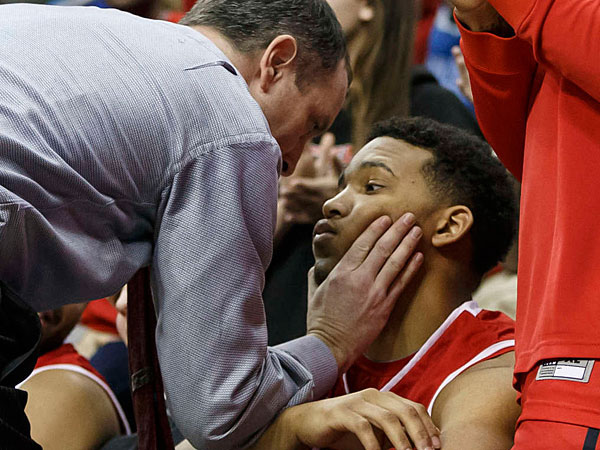 Approximately eight years ago, I undertook our first college abuse case, along with my legal assistant, Danelle Welzig, involving the Penn State Women’s Gymnastics Program. Abuse continues to this day, whether it’s women’s or men’s sports, whether it’s a revenue producing sport or not, or whether it be a public or private university. Abuse of college athletes has been a well hidden problem that has existed in plain sight for too many years.
Approximately eight years ago, I undertook our first college abuse case, along with my legal assistant, Danelle Welzig, involving the Penn State Women’s Gymnastics Program. Abuse continues to this day, whether it’s women’s or men’s sports, whether it’s a revenue producing sport or not, or whether it be a public or private university. Abuse of college athletes has been a well hidden problem that has existed in plain sight for too many years.
What constitutes abuse and bullying in coaching and what crosses the line of acceptable behavior has become an issue in college athletics. The abuse takes the form of sexual, physical, or mental abuse. In most of the cases, we have handled mental or emotional abuse. Abuse takes the form of:
- Utilizing homophobic or racial slurs
- Embarrassing student-athletes in front of peers
- Threatening loss of scholarship
- Forcing play or training when injured
- Demeaning statements
- Slapping, grabbing, hitting, shoving, throwing equipment at student athlete
- Demanding excessive exercise as a means of punishment
- Denial of fluids
- Not sending potentially injured student-athlete to team doctor
- Imparting unreasonable requests as a form of punishment
- Weight loss requirements
- Religious dictates
- Unwarranted yelling and screaming
- Criticizing the student-athlete’s abilities
- Taunts, name-calling, threats, intimidation
- Exclusion from peer groups, isolation
- Retaliation
- Bullying
- Sexual Harassment
- Sexual Abuse – Violence
When case after case started coming to our offices, we wrote a letter to NCAA President Mark Emmert (https://greenberglawoffice.com/open-letter-president-ncca-abuse-must-end/) calling for some action by the NCAA to curb what we saw happening in college athletics. My point is that this happens in every corner of the United States.
In the last several months articles have been released regarding the Women’s Hockey program at Harvard University. According to the Boston Globe, Coach Katey Stone has been accused of “denigrating players so severely that they sought mental health care; minimizing the psychological issues; pressuring players to return from concussions and other injuries; shaming their physiques; and adversely impacting their academics.” Some of the women have also come forward with allegations of hazing, which in some states can carry criminal charges.
You would have thought that with the firings, resignations, and embarrassments to athletic directors, university presidents and boards of trustees, that abuse allegations would have subsided, but that is not the case. We receive two or more calls a week asking about abuse and our representation therefor.
We made several suggestions to NCAA President Emmert in our letter as to how the NCAA, conferences, and universities could and should handle matters of abuse in college athletics. This continues to be a serious problem and one that universities, conferences, and the NCAA need to take more seriously as the damage done to our student-athletes is incalculable.
Always remember, universities are the trustees for the well-being of our students, including putting the students’ health, safety, and welfare as a first priority. Job security, charitable donations, and public embarrassment should not be a more important priority than student-athletes’ safety. I’m sorry to say that after eight years, it appears that this problem continues to exist.


